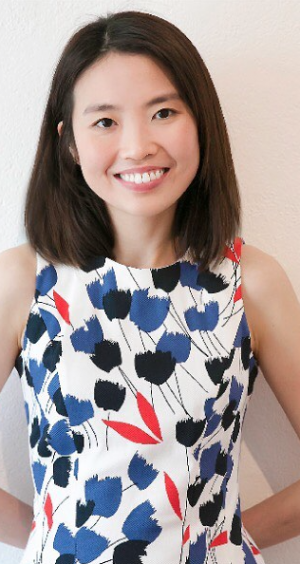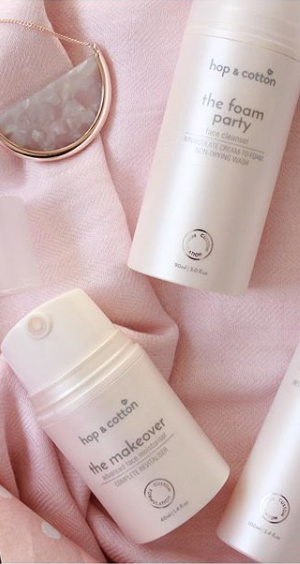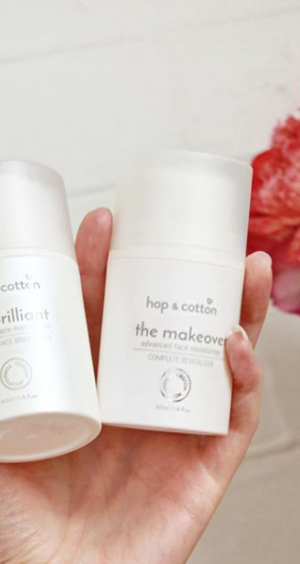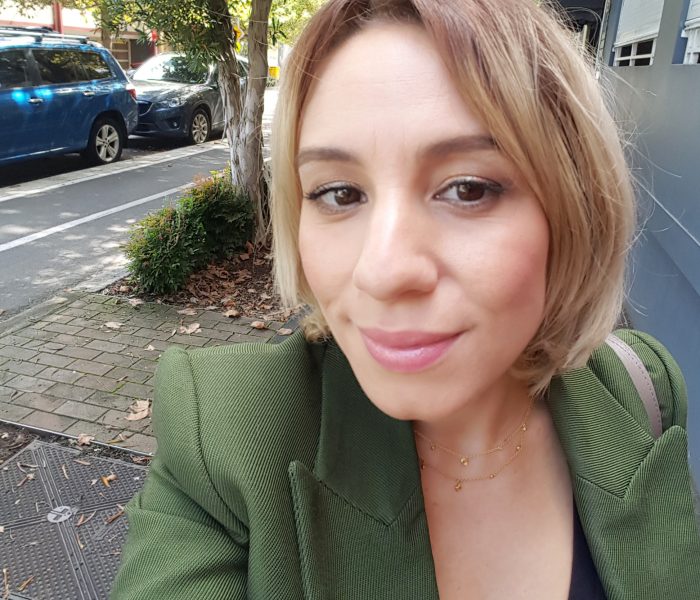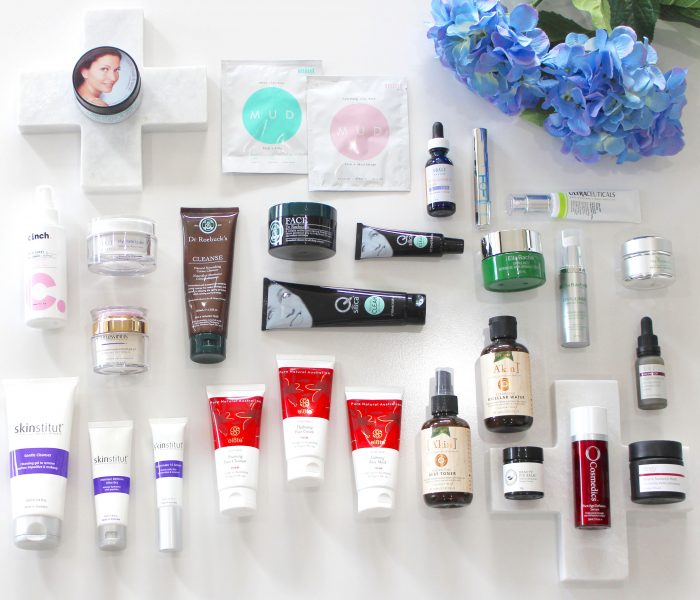Customised Skincare - Is This The Answer To Clear Skin?
We discover why skincare should be individual and the ingredients to keep your eye out for if you're prone to acne or have sensitive skin...
Hop & Cotton was born out of founder and cosmetic scientist Ee Ting's personal stuggle with skin. She spent 10 years on a quest to find the perfect products before taking matters into her own hands to create her very own skincare line. In our interview with Ee, below, we discover why skincare should be individual and the ingredients to keep your eye out for - especially if you have acne-prone or sensitive and reactive skin.
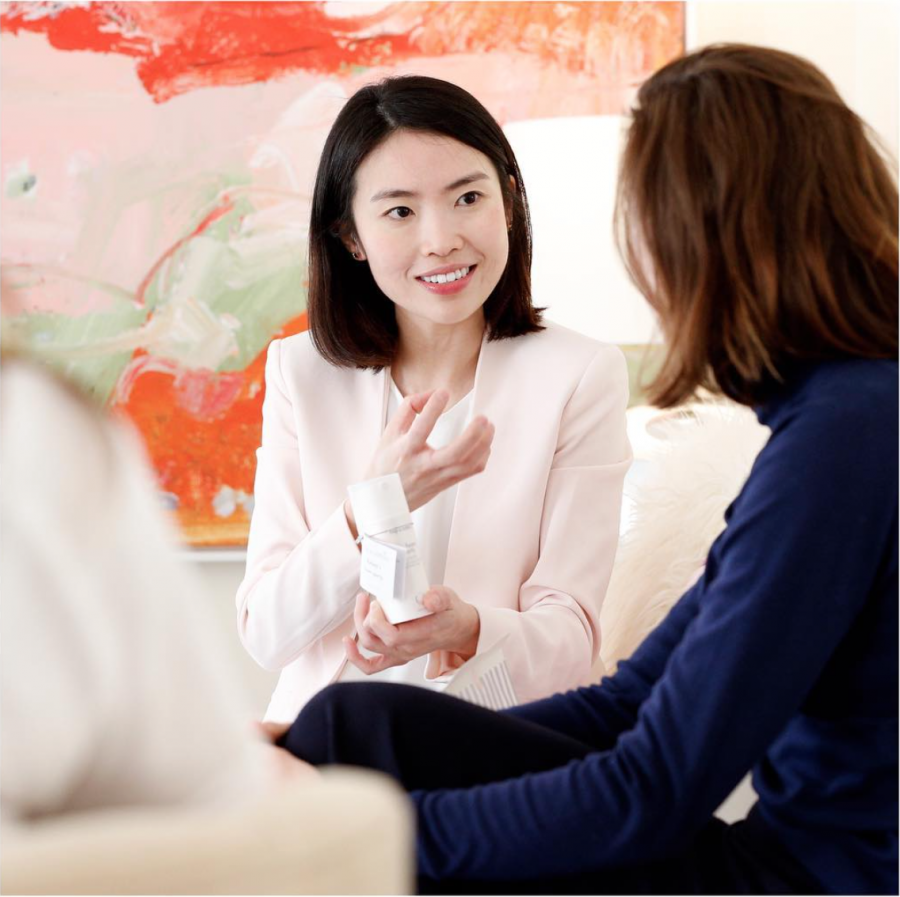
Hop & cotton is an amazing concept! When did you realise that you wanted to create a personalized skincare range?
Thank you! I first got into formulation to manage my really difficult skin. For years, my skin just could not agree with anything off-the-shelf, so this was my last resort.
In doing the same for family and friends, the great results we saw from the products I created specifically for each of them inspired me to start hop & cotton, so I can offer this to everyone else.
What are some of the surprising things you have learned about skin and skincare in your 10 years of research?
For me, it was realising that the determining factors that make actual perceivable differences to the skin come mostly from the ingredients that are not marketed as much as the active ingredients that people mostly talk about.
Why do you think your approach works?
I believe it works because the way everyone’s skin reacts to products can be very different – mostly due to the skin type itself, various conditions associated with it as well as different environments, lifestyle, routines and diet. By having products formulated for the ‘general public’, it is very difficult to accommodate for all the different variables possible. This can usually lead to poor compatibility issues, which usually doesn’t quite end well for the person’s skin over time – i.e. irritation, weakened functional barrier, congestion, breakouts, etc.
This is why we don’t want to take any chances and formulate products from scratch, to ensure that each and every one is designed specific to the individual for maximum effect.
Moreover, personal preferences such as scent and texture differ quite greatly between different individuals. This gives people the opportunity to create something that they would really enjoy using in their daily skin care ritual.
As a fellow sensitive skin sufferer what are some of the benefits of having skincare customized?
In addition to avoiding common irritants and allergens, we can go one step further and omit any ingredient a client has a particular intolerance to. It could be any commonly used ingredients like xanthan gum or glycerin, or even actives beneficial for most people (e.g. Vitamin C, shea butter).
We don’t use any ‘pre-made’ bases or serums, and therefore have the full blank canvas to formulate their products with alternatives that will also address the skin concerns they might have Another advantage is having the ability to streamline one’s entire routine, eliminating the need for multiple products to reap the benefits of different active ingredients (that exist across many different products i.e. serums, essences).
We can formulate to combine everything a person needs into 3 products. Less is best especially for sensitive/reactive skins - the fewer products we use, the less we subject it to irritation and congestion.
How do you approach formulation for different skin types?
Formulating for different skin types is essentially about getting the type and balance of ingredients right. For example, extremely oily skin with a lot of natural sebum will only need a moderate level of humectants without additional emollients, while severely dry skin lacking in oil (and usually also water) will require a significant amount of both oils and humectants.
The above is a simplification of the process. Realistically, things will be more complicated when we factor in different conditions like acne, sensitivity/allergies, hyperpigmentation, signs of ageing as well as clients’ product texture preferences. So in addition to getting the proportion correct, it is equally crucial to select the right type of ingredients (i.e various oils and actives) for the final formula to be the most effective for the person using it.
What are some ingredients to avoid if you have sensitive skin?
I would recommend avoiding any sort of fragrance (including essential oils), naturally fragrant botanical extracts (e.g. clove, cinnamon) as well as particularly potent preservatives that are great for shelf-life but not for sensitive skin, specifically methylchloroisothiazolinone and methylisothiazolinone.
It is also possible to react to an ingredient that is not typically known to cause irritation or allergies. If you are someone who reacts easily to cosmetic products, keep your routine minimalistic and look for products with simple formulas (i.e. short ingredients lists).
What are some of the myths surrounding the best ingredients to treat acne?
First of all, the best ingredients with proven track records used to treat acne are:
- beta-hydroxy acids/BHA (salicylic acid)
- alpha-hydroxy acids/(AHA (e.g. glycolic acid, lactic acid)
- benzoyl peroxide
- topical/oral antibiotics (e.g. clindamycin, erythromycin)
- topical/oral retinoids (e.g. tretinoin, isotretinoin, retinol).
With that now out of the way, I think the greatest misconceptions fall into two opposing groups. One that believes these ingredients are all extremely harsh, ultimately doing more damage than good where they should be avoided as much as possible; and the other going for the most concentrated (i.e. highest %) of these ingredients, using a combination of them multiple times daily, in hopes of getting better or faster results.
In your opinion what works best to treat acne?
Generally, the ingredients listed above are the best to choose from when treating acne. The important thing to know is that there is no single best acne-fighting ingredient. The ideal type and dosage depends on various factors such as the type/severity of acne as well as the skin/health condition of the person as some are not pregnancy-safe.
Closed comedones (e.g. blackheads, whiteheads or ‘blind’ pimples) respond best to BHA, AHA and retinoids. Mild to moderately infected pastules and papules will be more responsive to antibacterial agents (e.g. benzoyl peroxide, antibiotics). More severe cases, including nodules and cysts, require medical attention. Oral antibiotics, birth control or isotretinoin are often prescribed.
When the worst of your acne is over, consistent use of AHAs and/or BHA is important in maintaining skin clarity.
What are some commonly found ingredients in other skincare that might make sensitive skin types react?
In addition to those ingredients mentioned in Question 6, I would also avoid DMDM hydantoin, imidazolidinyl urea, products with high levels of alcohol (this is if alcohol is listed within the first five ingredients in any ingredient list) and chemical sun filters (avobenzone, octinoxate, octisalate, oxybenzone etc.).
What are some of the key ingredients you use in your skincare that promote anti-aging without causing irritation?
I like to use a cocktail of antioxidants such as Vitamin C, E and CoQ 10, to protect skin cells against environmental free radical damage and collagen/elastin breakdown. Peptides are another group of ingredients that can be fantastic for rejuvenation. To date, retinoids (Vitamin A and its derivatives) still maintain the gold standard for anti-ageing, but there is often doubt or fear of it being too harsh. With custom formulation, we are not only able to choose the type of retinoid that will best suit the individual but can also gradually increase the concentration when necessary so that they continue to receive to give optimum benefit without suffering discomfort or irritation.
What’s next for you?
We are adding another product into the mix – something that everyone should use during the day to keep their skin well protected!
